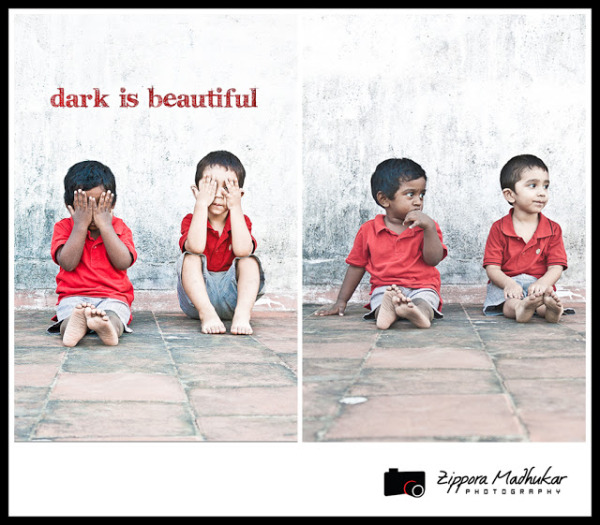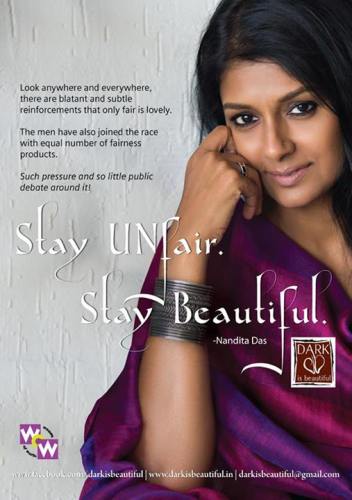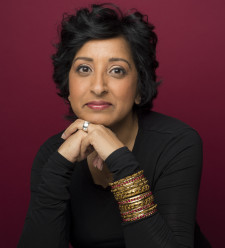

We live in a society where we’re bombarded by pictures of glamourous women on the covers of magazines and on television. These images are cited as examples of beauty and what others should aspire to in order to be considered beautiful. In the South Asian community, it’s no different with the Bollywood starlets who grace the covers and once again they all have a similar look. Women are conditioned to often look for the approval of others especially when it comes to our appearance. When someone gives us a compliment on what we wear or how we look, it boosts the confidence level and adds a little bounce into our step. Often times we find ourselves coveting that approval and use it as validation of how we feel about ourselves. This is a learned behaviour and can be passed down by generation to generation. When it was us who were the daughters, many of us chose not to question what our mothers said to us. But now that we are mothers, things have changed and it has become a lot more complicated. We start to question things and so do our daughters. How do we teach our girls to love and cherish what is within themselves when they too are being judged by how they look outside?
Dear Didi,
I have a wonderfully confident, sassy, pretty six-year-old daughter. She was a beautiful baby and toddler… and she heard it over and over again from all our friends and family. One of her favourite pastimes was dressing up in my clothes and parading around the house asking us how pretty she looked. Today she came home very sad and when I asked her what was wrong, she told me that she hated the colour of her skin. Someone had said that she was too dark and it made it look ugly. It broke my heart. What do I say to my daughter? How do I help her?
Shades of Brown

Dear Shades of Brown,
It’s the hardest thing to do – watch you child when they are hurt. We can’t always be there with them to protect them. Words hurt and they can sometimes leave some deep scars. It’s important that you talk to your daughter and concentrate on the positive things. Ask her three things that she likes about herself and why she like them. Also explain to her that there are many different things about a person that makes them beautiful on the inside and this is an attribute that she can control. Beauty is in the eye of the beholder and not everyone has the some taste in beauty – and that’s okay. It’s the differences in our appearances that make us unique. Unfortunately, in the South Asian community there is a common perception that a girl’s beauty is deemed by the colour of her skin – the more fair she is and the more beautiful that she is perceived to be. Speak to your daughter about your thoughts on the subject. Share your stories about it and start a dialogue so that your daughter can feel comfortable and confident in her own skin. There are also resources that you can find online – there is a documentary called Shadeism (defn: discrimination that exists between the lighter-skinned and darker-skinned members of the same community.) that you might want to check out. It talks to five young women and one girl from different cultures that face the same issues about Shadeism.
I grew up with my four sisters and brother. My parents were born and raised in India where both of them came from small villages in the Punjab. My mother was ridiculed by her mother-in-law for having 5 girls and only one boy, so she heard a lot of criticism from my grandmother who also extended it to my sisters. I always thought my older sisters were absolutely stunning – they were much older than I was and beautiful & sophisticated. But I never heard any reference to their looks – ever. My parents tended to refer to them by their personality and character rather than their looks. The only reference that my parents ever made about my appearance was to call it “wheat-coloured” when referring to me in a matrimonial or something. This was neither a compliment or insult – just a fact recited along with height, build and other characteristics to give my potential suitor a better picture of myself. What I do remember my parents saying about me and to me was that I was smart. It gave me such confidence about my ability to be the best that I could be and it was also something that I could control through education and experience. By concentrating on my intelligence rather than my looks, my parents were able to help me build a strong foundation of values, ability to be a free-thinker and faith in myself – all wonderful gifts that any parent should be proud to give to their child. I was very lucky and I hope that I have the chance to pass that along to my children as well.
Has your family ever referred to the colour of your skin? How did it make you feel? How did you handle the situation? Any suggestions on how to address it with your kids? Contact Kulbinder Saran Caldwell.
By Kulbinder Saran Caldwell, CPC
Twitter: @DearDIDI_KSC www.reallifetalks.com
